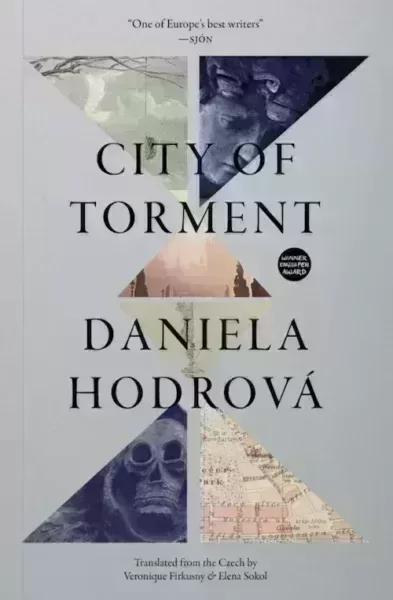
City of Torment
Daniela Hodrová
translated by Véronique Firkusny and Elena Sokol (Jantar Publishing, 2021)
If you believe the old story, Prague began with a prophecy. Sometime in the eighth century, the Czech princess Libuše — the wisest of King Krok’s three daughters — went out onto a rocky cliff overlooking the river Vltava. Stretching her arms wide, she declared: « I see a great city whose fame will touch the stars. » She ordered the building of a town at the place where a man could be found sawing a block of wood. Since that man happened to be working on the threshold for a house — a prah, in Czech — the city was called Praha, or Prague.
In Both Kinds is the first novel of Daniela Hodrová’s City of Torment (Trýznivé město), a magical-realist trilogy recently published in full English translation for the first time. Hodrová, also a prominent Czech literary scholar, worked on the books from 1977 until the early 1990s, when they were published in the wake of Communism’s fall. She was no dissident in the Václav Havel mold (though she did support the cause), but her work’s formal experimentation and idiosyncratic historical vision made it impossible to publish in Czechoslovakia’s post-1968 « Normalization » period. In Both Kinds circulated in samizdat before its official publication, along with Puppets and Theta, in 1991. A fourth book (and unofficial epilogue) named Prague: I See A City (1991), originally commissioned as an alternative travel guide, is Hodrová’s more directly autobiographical reflection on the period of hope and disillusionment that followed the fall of Communism. She has been translated into French, German, Bulgarian, and now finally English, thanks to Véronique Firkusny and Elena Sokol.
This article is behind the paywall. Want to keep reading this article?
Subscribe to the European Review of Books, from as low as €4,16 per month.
Already a subscriber? Sign in